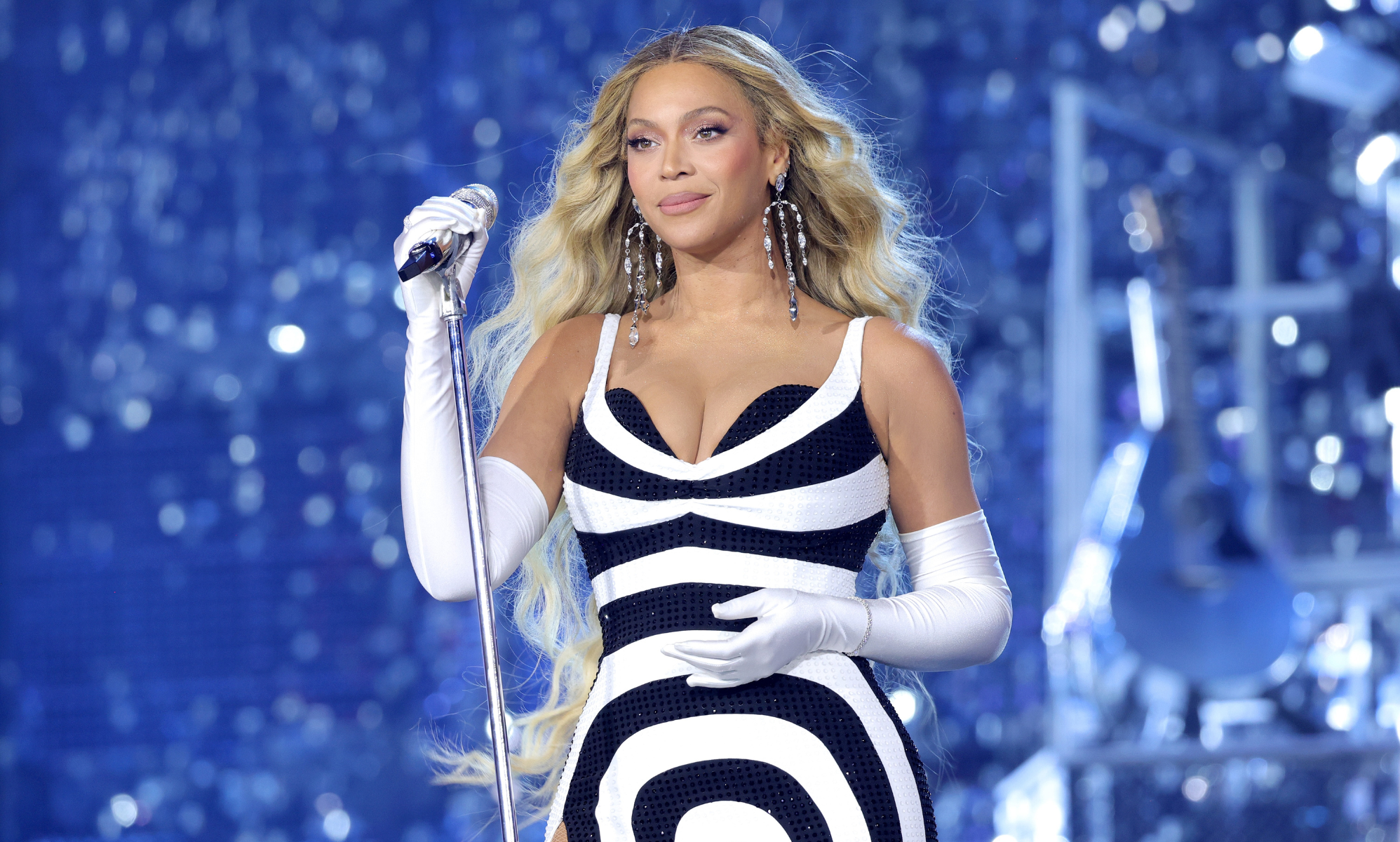Beyoncé responds to racial criticism of country album as she unveils ‘Cowboy Carter’ cover
Sign up for more LGBTQ+ news and updates at TrueQueer.
In a bold move that has sparked both excitement and controversy, Beyoncé has announced her upcoming country album, “Cowboy Carter.” The iconic singer, known for pushing boundaries and breaking barriers, unveiled the cover art for the album amidst racial criticism and backlash from some corners of the music industry.
The announcement of Beyoncé’s foray into country music was met with enthusiasm by her loyal fanbase, the BeyHive. However, the singer quickly found herself at the center of a storm of racism as she faced pushback for daring to enter a genre traditionally dominated by white artists. Despite this, Beyoncé remained undeterred, expressing her gratitude to her supporters and highlighting the importance of breaking down racial barriers in music.
In a post on social media, Beyoncé acknowledged the historic significance of being the first Black woman to top the Hot Country Songs chart with her single “Texas Hold ‘Em.” She emphasized that an artist’s skin color should not limit their ability to explore different genres and create music that resonates with audiences worldwide.
The inspiration for “Cowboy Carter” reportedly came from Beyoncé’s past experiences in the country music world, particularly her performance at the Country Music Awards in 2016. The singer faced racist abuse following her collaboration with The Chicks on the track “Daddy Lessons,” prompting her to delve deeper into the history of country music and explore its rich musical heritage.
Addressing the criticism she has faced for venturing into country music, Beyoncé emphasized the importance of challenging herself and pushing past limitations imposed by others. She explained that “act ii” is a result of blending genres together and creating a body of work that reflects her musical journey and personal growth.
Despite Beyoncé’s groundbreaking achievements in country music, she has not been immune to discrimination. Reports surfaced that an Oklahoma-based country radio station initially refused to play her new singles from “Cowboy Carter,” citing their status as a country music station. The station manager’s comments sparked outrage among listeners, leading to a change in policy and the inclusion of Beyoncé’s tracks in the station’s rotation.
This incident is just one example of the gatekeeping and racial bias that have long plagued the country music genre. Historically dominated by white performers and audiences, country music has often overlooked the contributions of Black artists who played a significant role in shaping the genre’s sound and style.
Beyoncé’s journey into country music parallels that of other Black artists who have faced similar challenges. Lil Nas X, best known for his hit single “Old Town Road,” also encountered backlash and controversy when his song was removed from Billboard’s Hot Country Songs chart for allegedly not aligning with the genre’s standards.
As Beyoncé continues to push boundaries and challenge stereotypes in the music industry, her upcoming country album promises to be a powerful statement on inclusivity and diversity in a genre that has historically been exclusive. With “Cowboy Carter,” Beyoncé not only asserts her place in country music but also amplifies the voices of Black artists who have long been marginalized in the industry.
Follow us on: Facebook for more LGBTQ+ news and updates at TrueQueer.
country album
![]()

